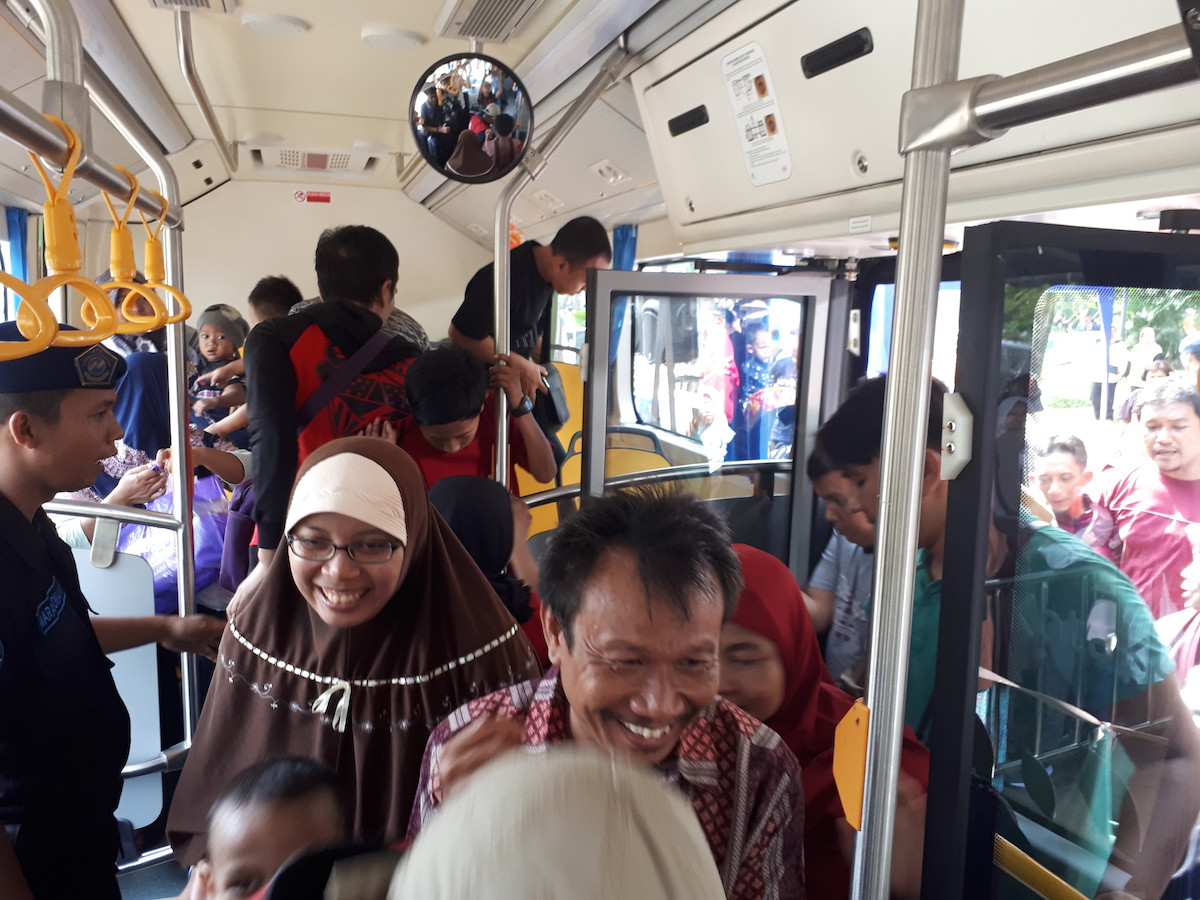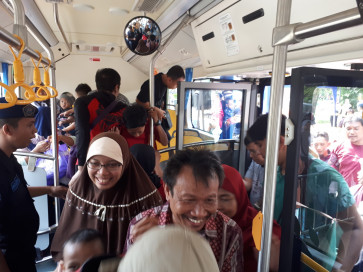Sexual harassment on public transportation in Indonesia second only to on the street: Survey
A recent survey conducted by the Coalition for Safe Public Space (KRPA) reveals that public transportation is the second-most dangerous public place for women, with the frequency of sexual harassment only less than often than that which occurs on the street.
Change Size
 Passengers board a Transjakarta electric bus on June 8 at the National Monument in Central Jakarta. (JP/eyc)
Passengers board a Transjakarta electric bus on June 8 at the National Monument in Central Jakarta. (JP/eyc)
P
eople choose to travel on public transportation because it is affordable and reliable for day-to-day needs. But is it safe and comfortable for women?
A recent survey conducted by the Coalition for Safe Public Space (KRPA) reveals that public transportation is the second-most dangerous public place for women, with the frequency of sexual harassment only less than often than that which occurs on the street.
The coalition, which consists of civil society groups concerned about violence against women, involved 62,000 people across Indonesia in the survey.
Held to commemorate the 16 Days of Activism to Eliminate Violence Against Women, the survey highlighted how women are 13 times more vulnerable to sexual harassment on public transportation than men.
Although most cases of sexual violence reported to the National Commission on Violence Against Women (Komnas Perempuan) happen in private, Anindya Restuviyani administrator of Hollaback! Jakarta, part of the coalition, said that sexual harassment on public transportation was the form of harassment that is most frequently ignored.
“This happens because sometimes people don’t understand what they have experienced is sexual harassment, so they ignore it and people around them who witness the incident ignore it, too. This will only strengthen the rape culture in our nation,” Anindya said in a press conference on Wednesday.
Most of the women respondents said buses (35.45 percent) and angkot (public minivans) (30 percent) were the means of transportation where most harassment took place, followed by the commuter line train service (KRL) with 17.79 percent.

















